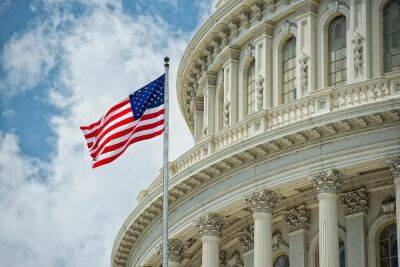U.S. Congress to introduce new draft bill for stablecoins
A new draft bill providing a framework for stablecoins in the United States was published on the House of Representatives' document repository, a few days before a hearing on the topic on April 19. The draft puts the Federal Reserve in charge of non-bank stablecoin issuers, such as crypto firms Tether and Circle, respectively issuers of Tether (USDT) and USD Coin (USDC).
Stablecoins are a class of cryptocurrencies that attempt to offer investors price stability by being backed by specific assets or using algorithms to adjust their supply based on demand. Stablecoins were introduced in 2014 with the release of the BitUSD.
According to the document, insured depository institutions seeking to issue stablecoins would fall under the appropriate Federal banking agency supervision, while non-bank institutions would be subject to the Federal Reserve oversight. Failure to register could result in up to five years in prison and a fine of $1 million. Issuers out of the United States would have to seek registration to do business in the country.
Among the factors for approval are the ability of the applicant to maintain reserves backing the stablecoins with U.S. dollars or Federal Reserve notes, Treasury bills with maturity of 90 days or less, repurchase agreements with maturity of 7 days or less backed by Treasury bills with maturity of 90 days or less, as well as central bank reserve deposits.
Additionally, issuers must demonstrate technical expertise and established governance, as well as the benefits of offering financial inclusion and innovation through stablecoins.
On a Twitter thread, Circle's CEO Jeremy Allaire said that "there is clearly the need for deep, bi-partisan support for laws that ensure that digital dollars on the
Read more on cointelegraph.com
















